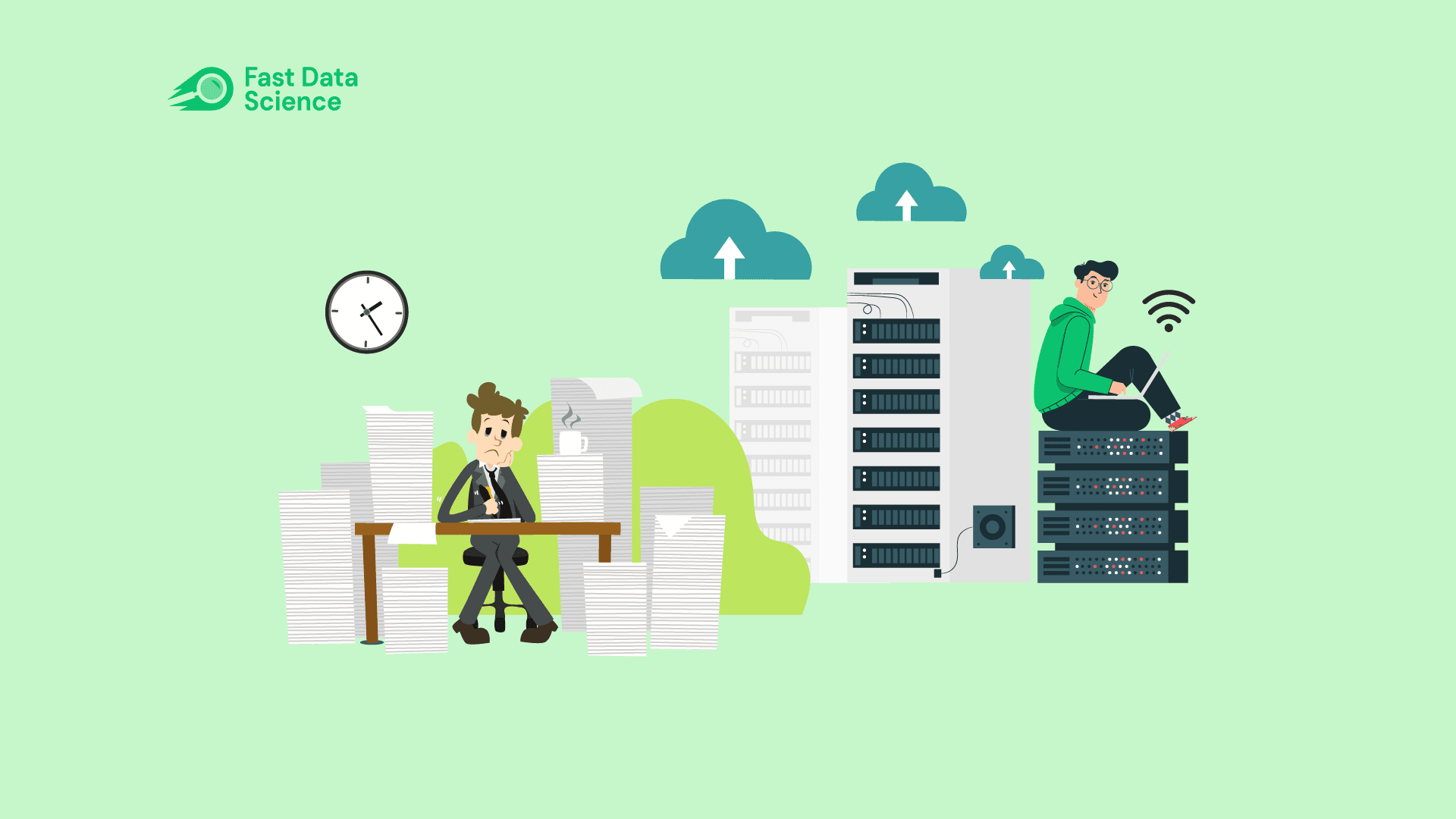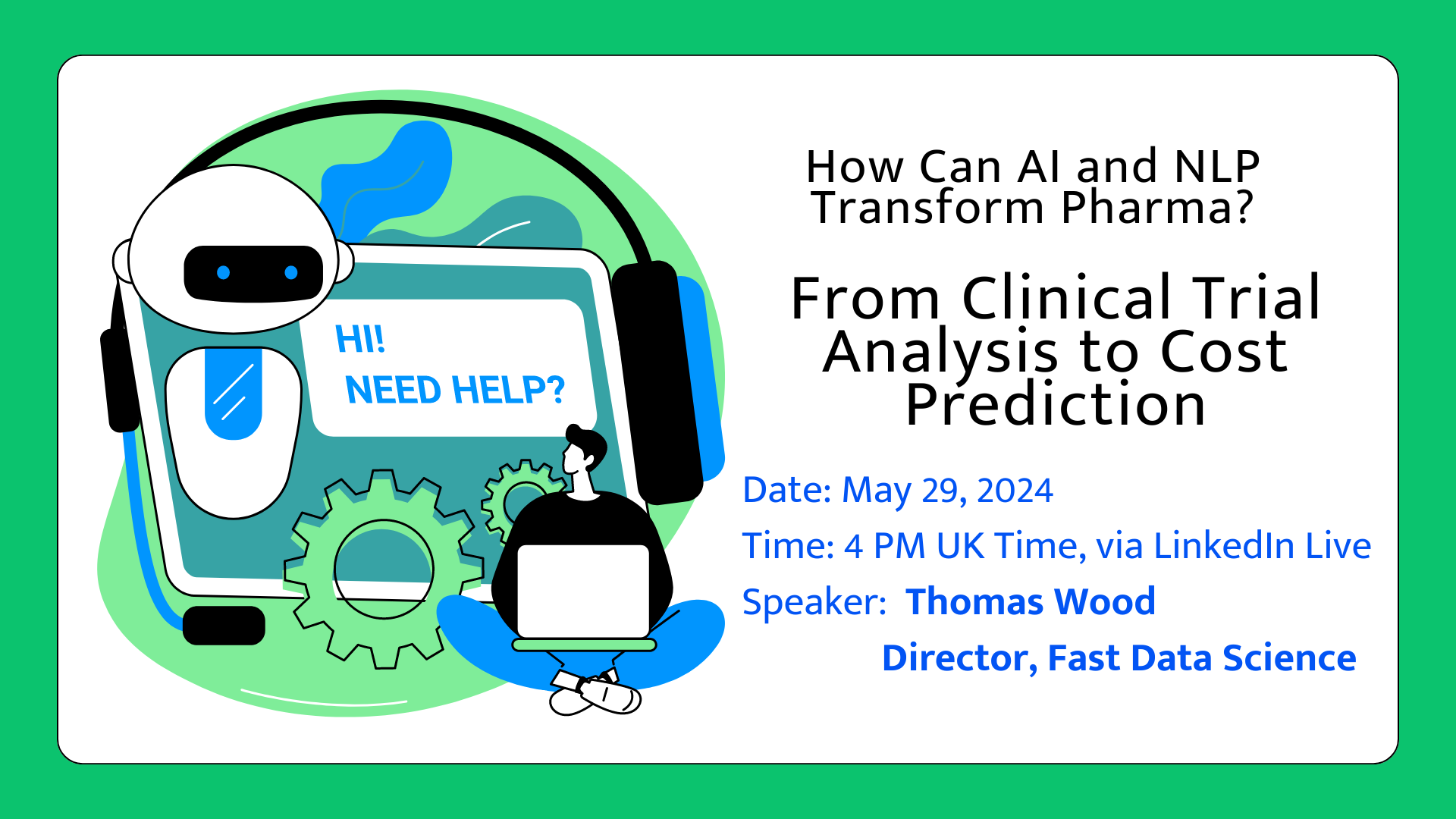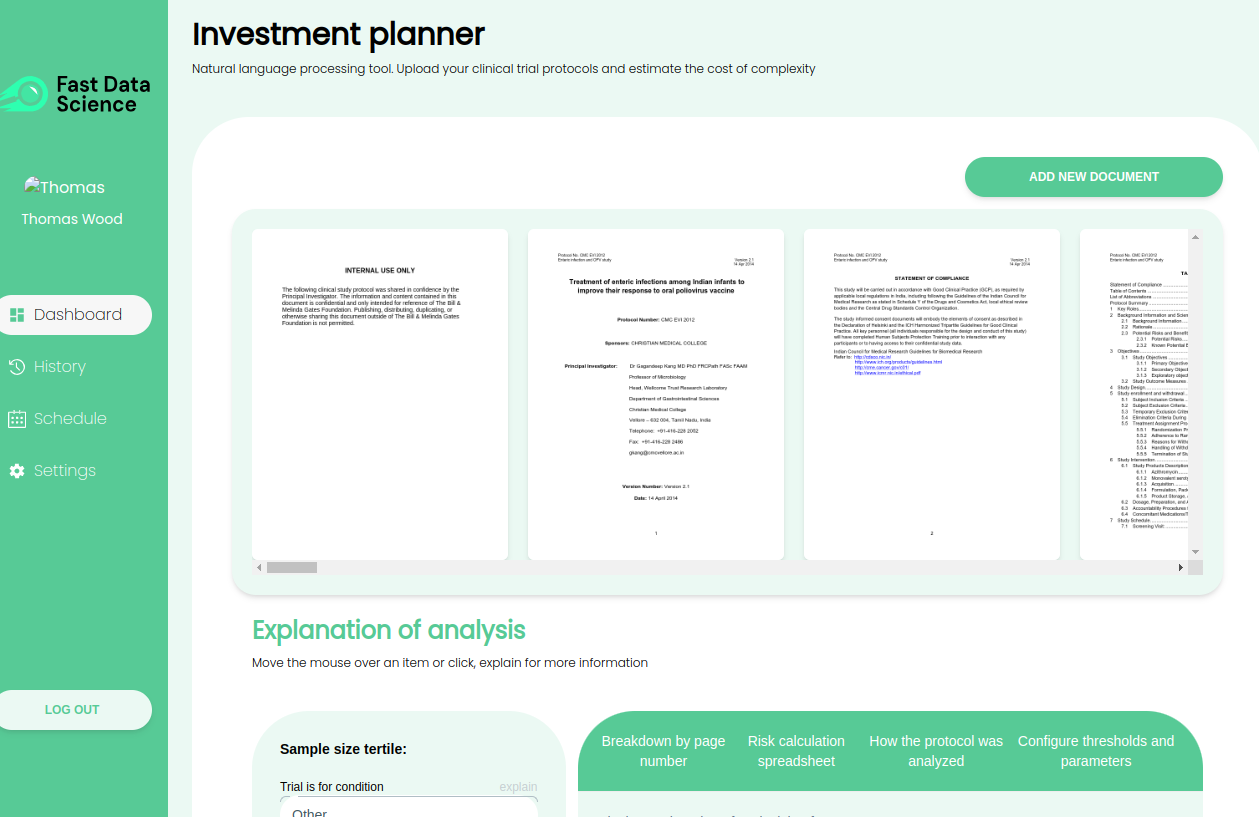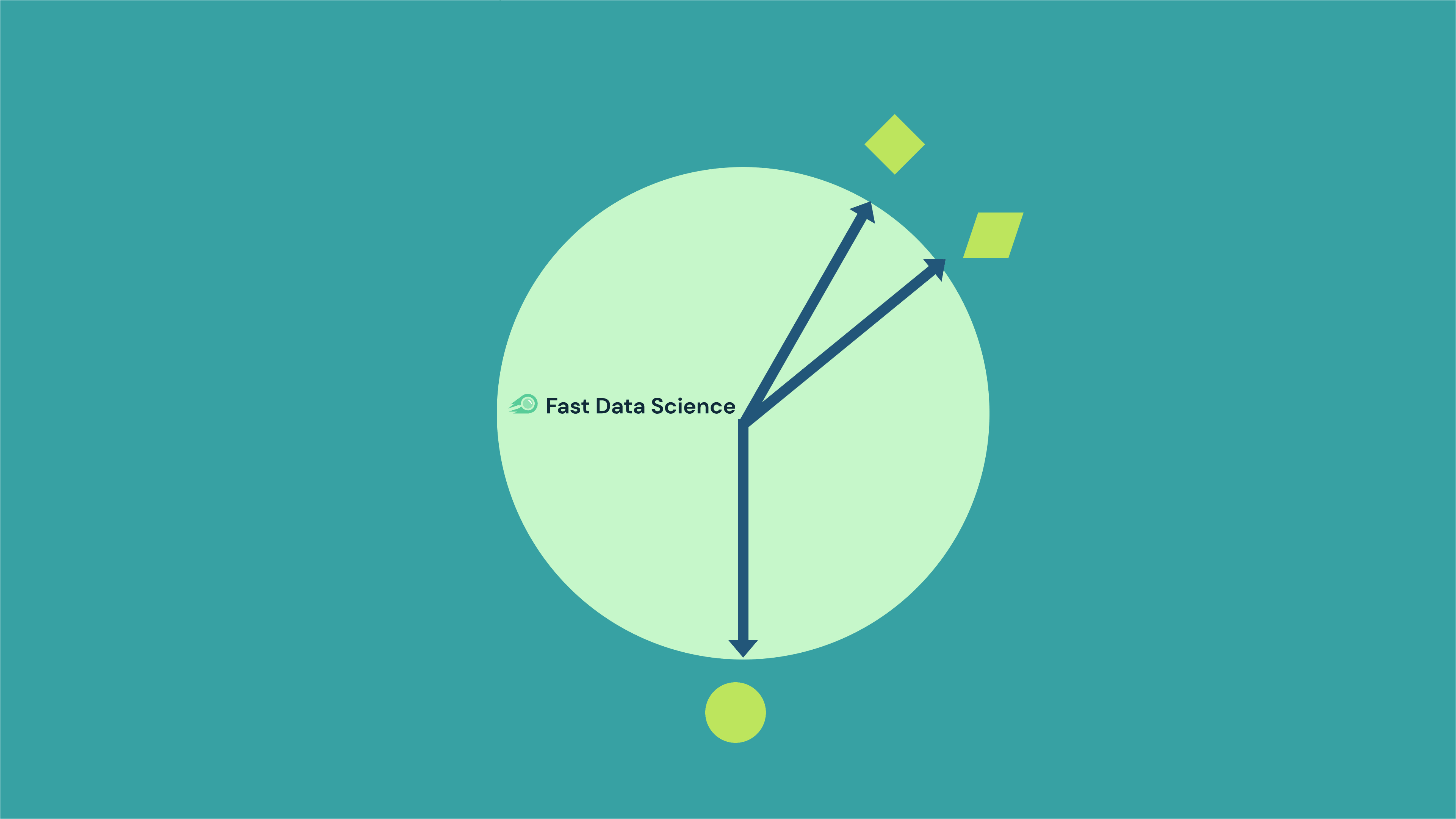
Big Data The emergence of big data has revolutionized industries, transforming traditional business models and decision-making processes. In this comprehensive exploration, we delve into what big data is, its significant impacts on business strategy, and how companies can leverage vast datasets to drive innovation and competitive advantage.

AI in Finance The integration of artificial intelligence (AI) into the finance sector has revolutionized how institutions operate, from automating operations to enhancing customer engagement and improving risk management. This comprehensive exploration will delve into several key areas where AI is making significant inroads within the industry.

On 29 May, Thomas Wood presented a webinar on how AI and Natural Language Processing (NLP) can transform clinical trials in the pharmaceutical industry.

AI in business and industry Artificial intelligence (AI) is a hot topic in business, but many companies are unsure how to leverage it effectively. I will discuss some practical applications of AI, focusing on areas where it can deliver real impact.

Modelling risk and cost in clinical trials with NLP Fast Data Science’s Clinical Trial Risk Tool Clinical trials are a vital part of bringing new drugs to market, but planning and running them can be a complex and expensive process. A key part of this planning is accurately estimating the cost and risk of a trial. Traditionally, this has involved a team of experts manually sifting through lengthy clinical trial protocols, often hundreds of pages long.

In natural language processing, we have the concept of word vector embeddings and sentence embeddings. This is a vector, typically hundreds of numbers, which represents the meaning of a word or sentence.

We often hear about the potential for AI in healthcare, or how it could transform organisations like the UK’s National Health Service. The UK has set up the NHS AI Lab with areas of focus such as AI imaging, AI ethics and regulation. In the USA, AI in healthcare is expected to save over $200bn from annual medical spending.

Large Language Models and NLP: Overview AI has seen remarkable advancements in recent years and one of its most notable ones is the development of LLMs or large language models. LLM and NLP (natural language processing) are two terms often used together as LLM models have pretty much revolutionised the field of NLP – machines can now understand and generate text at an almost human-like level and at an unprecedented scale too.
What we can do for you